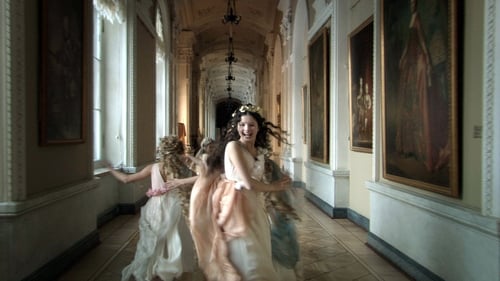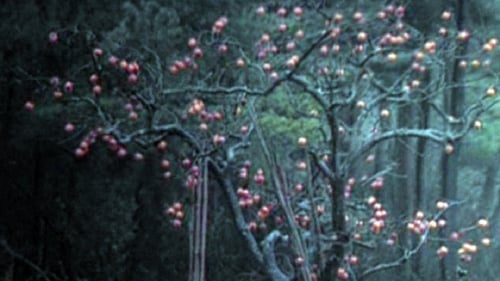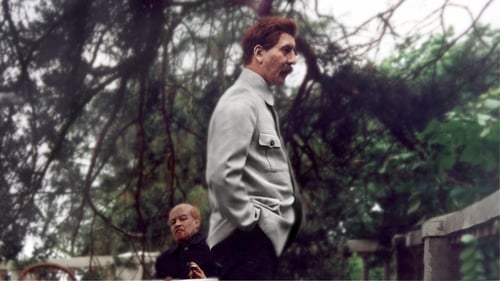
Sound
Two women are in love with the same man. After his death, some kind of friendship comes into being.

Sound
Elderly Aleksandra visits her Russian soldier grandson, Denis, at the Chechen war front, providing comfort as she tours his army. All the while, Denis ponders the reason for her unexpected appearance.

Sound
A ghost and a French marquis wander through the Winter Palace in St Petersburg, encountering scenes from many different periods of its history.

Producer
This intimately narrated journey from Russia to Rotterdam, via rail, road and Finnish ferry, is a melancholy meditation on divinity, time and place in art, purpose (or its lack) and the loneliness of the soul. Passing through misty snowscapes, half-glimpsed cities and the icy night sea-swell.

Executive Producer
Unfolding over two days in 1924, the film depicts the dying Lenin, world revolutionary and father of the USSR, now powerless and isolated at his Gorki estate. Cared for by his wife, Nadezhda Krupskaia, sister Maniasha, his German doctor and several attendants, Lenin raves about his diminishing faculties, discusses the deaths of great figures (including Marx), rides a car to a picnic in a meadow and ponders his historic legacy.

Producer
A documentary portrait of Miho Shimao, widow of renowned Japanese writer Toshio Shimao.

Sound
A man goes for a walk through the countryside with his dying mother.

Sound Designer
An anonymous man wanders through decomposing, fog-enshrouded catacombs and encounters a series of “the degraded and the humiliated,” including a holy prostitute and a Kafkaesque bureaucrat.

Sound Recordist
A man tries to come to terms with his father's death and to deal with the mundane details of his burial in a society cut off from spirituality.

Sound Editor
A 1988 documentary film directed by Alexander Sokurov, about the later life and death of Soviet Russian filmmaker Andrei Tarkovsky. The film was originally intended to mark the 50th birthday of Tarkovsky in 1982, which would have been before his death. Controversy with Soviet authorities about the film's style and content led to significant delays in the production.

Sound
The action in this lavishly produced film takes place at an oddly ark-shaped mansion during World War I, and in spirit (although not in story) it reflects the play which inspired it, the ferociously antiwar Heartbreak House by George Bernard Shaw. A large group of family and friends have gathered at this country house to dance, drink, and converse. Their conversation, in particular, is adorned with erudite literary references and quotations. Despite their apparent refinement, their preoccupations are simple: sex and violence. Disquieting images break the tranquility of the vacationers' inappropriate idyll: some of these include documentary footage of starving African children, images (both real and re-enacted) of George Bernard Shaw going about his daily life, and a corpse coming to life on an autopsy table, only to cheapen that miracle by scolding a group of women. The music used in the film ironically points to its disturbing message and is uniformly anachronistic.








